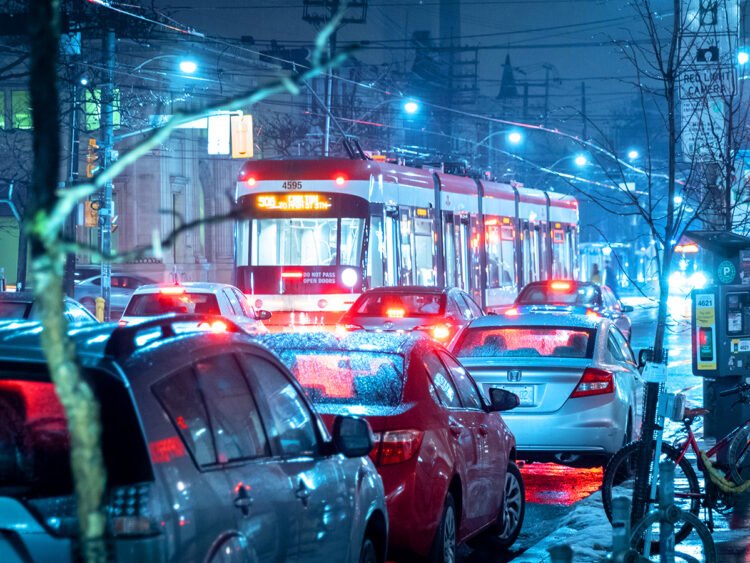Toronto, ON — After 12 years in her west-end apartment near the Gardiner Expressway, Ingrid Buday thought she’d adapted to city living. But when backfiring mufflers and revving engines began jolting her awake at night in 2019, her patience snapped.
“I got angry. I got really angry because it was my sleep that was disturbed,” Buday says.
The loss of sleep and peace led Buday to buy a sound meter. Her data confirmed what she already felt: the noise wasn’t in her head. That realization led her to create No More Noise Toronto, a grassroots group pressuring the city for meaningful noise regulation.
And she’s far from alone.
Across the Greater Toronto Area, residents are reporting unrelenting noise from sources as varied as midnight garbage trucks, souped-up vehicles, construction sites, outdoor concerts, and even faulty air conditioning systems.
“It’s Destroyed My Health”
Rochelle Rodney, 68, moved to a serene Mimico apartment in 2013. But that quiet vanished when her building was sold to a real estate investment trust, which installed an industrial heat pump that hums and vibrates non-stop.
“I feel I’m on the verge of a mental breakdown,” Rodney says. “Ten years of sleep deprivation and constant stress.”
She’s tried sleeping in her bathtub and even her closet. Nothing works.
And moving? Not an option. “I can’t afford what the market costs now,” she adds.
Soundproofing: A Costly Last Resort
In Casa Loma, Nick Iozzo faced years of booming concerts from events hosted at nearby Casa Loma castle. With no success from noise complaints, he spent $40,000 on soundproofing his windows.
“It was cheaper than moving,” he says.
He feels the city has prioritized revenue from events over the wellbeing of local residents — and fears the same is happening at the new Downsview Park stadium.
“My Baby Can’t Sleep”
In Vaughan, Jessica Cordoba lives just steps from Highway 7. She says the constant roars of motorcycles and revving engines have turned her life into a nightmare.
“Sometimes I want to scream from the balcony,” she says. Her infant daughter can’t rest, and Cordoba is desperate to move — though the market may not let her.
Thousands of Complaints — But Few Solutions
In 2024 alone, Toronto’s 311 service received over 18,000 noise-related complaints — and 2025 is on track to match or exceed that. Yet, enforcement is limited and slow. Officers can’t shut down noise events on the spot and don’t respond to every report.
Coun. Chris Moise acknowledges the problem.
“When I’m out, I hear it — revving engines, horns, megaphones. And it’s getting worse,” he says.
Moise says the city is monitoring major events and taking steps, such as signage bans and noise blitzes, but admits more is needed. His office is working with Municipal Licensing and Standards to tackle amplified street sound, especially downtown.
“Vibrant Doesn’t Mean Loud”
Buday, a vocal advocate at city hall, says the tools to fix the problem already exist.
“There’s noise cameras, automated ticketing, bass limiters. Cities like New York are using them,” she says. “We’re being told the tech isn’t ready. That’s just not true.”
She emphasizes that noise is not just an annoyance — it’s a public health and equity issue. Chronic noise has been linked to stress, cardiovascular problems, sleep disorders, and cognitive issues. Those with lower incomes or fewer housing choices are disproportionately affected.
“We’ve prioritized the corporate agenda over public health,” Buday says. “People are tired, stressed, and angry. And the city needs to stop ignoring it.”

 English
English



























































